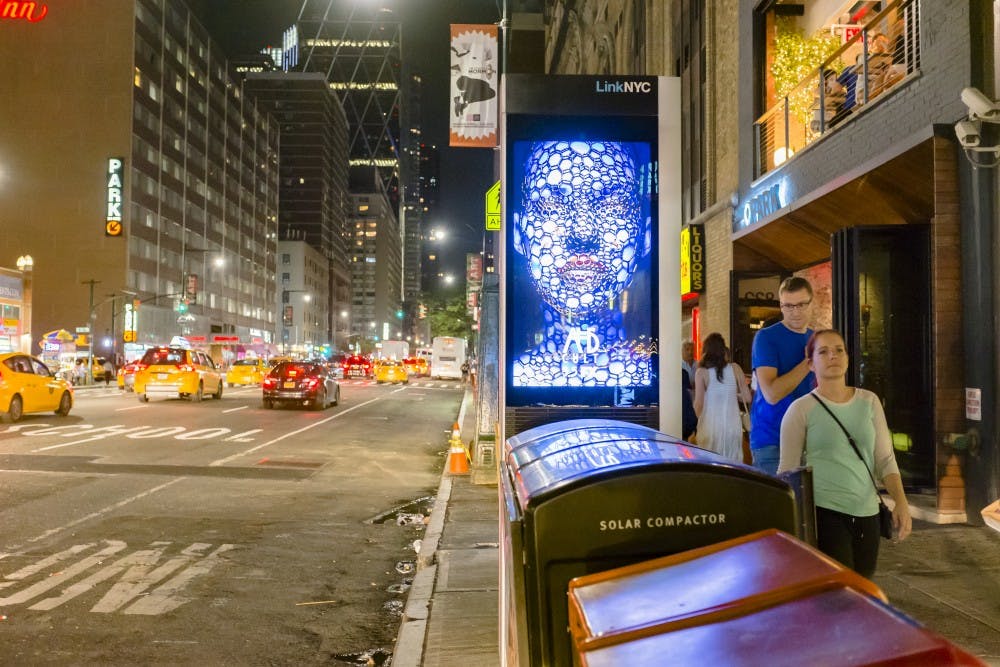
Photo by Billie Ward // CC BY 2.0
New LCD video screens, already stationed throughout Center City sidewalks, are about to find a new home inside SEPTA buses and subway stations. The transit authority's rollout of these new kiosks will be accompanied by USB charging ports under each seat of SEPTA's new buses, along with street-side internet access.
On buses, the screens will track location and arrival times, as well as display the latest news headlines and weather updates.
Thirty-five of the new buses have been constructed already, and SEPTA intends to roll out nearly 525 more, Ron Hopkins, assistant general manager for Vehicles Engineering & Maintenance, told The Philadelphia Inquirer late last month.
The planned multi-screen kiosks for sidewalks, which were designed by the firm Intersection, have received “conceptual approval” from the Philadelphia Art Commission. They will likely receive final approval around the beginning of November, according to The Inquirer. Mayor Jim Kenney and the Office of Transportation and Infrastructure Systems have endorsed the kiosks, which will measure "11 inches wide by 35 inches deep."
Already popular in New York City, the sidewalk kiosks or “Links” have USB ports and provide Wi-Fi hotspots throughout the city, according to PlanPhilly. Philadelphia plans to introduce approximately 80 Links in Center City and 20 in University City.
In August, SEPTA unveiled a free Wi-Fi hotspot and 10 interactive kiosks to aid commuters in Center City's Suburban Station, according to Philly Voice.
The kiosks can broadcast a steady stream of commercials, securing 50 percent of the advertisement revenue for the city. Some residents have cautioned against the potential for the kiosks to be overwhelmed with ads.
Scenic Philadelphia Executive Director Mary Tracy said in an interview with PlanPhilly that advertising has reached a “saturation point” and would be “one more crack in Philadelphia’s beautiful landscape.”
That advertising revenue could end up coming back into the city's coffers — Philadelphia will eventually recoup 50 percent of the ad sales, according to its agreement with Intersection. The city will receive a minimum of $450,000 from the deal.
The Daily Pennsylvanian is an independent, student-run newspaper. Please consider making a donation to support the coverage that shapes the University. Your generosity ensures a future of strong journalism at Penn.
Donate






